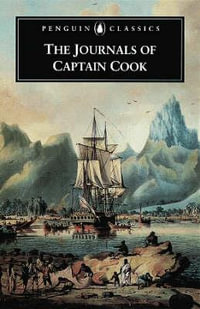
Hopped Up How Travel, Trade, and Taste Made Beer a Global Commodity
How Travel, Trade, and Taste Made Beer a Global Commodity
Hardcover | 9 January 2025
At a Glance
Hardcover
$79.80
Aims to ship in 15 to 25 business days
When will this arrive by?
Enter delivery postcode to estimate
Virtually every country has a bestselling or iconic national beer brand: from Budweiser in the United States and Corona in Mexico, to Tsingtao in China and Heineken in Holland. Yet, with the sole exception of Ireland's Guinness, every label represents the same style: light, crisp, clear, Pilsner lager. The global spread of lager can be told as a story of Western cultural imperialism: a European product travels through merchants, migrants, and imperialists to upend local patterns and transform faraway consumers' tastes. But this modern beer is just as much a product of globalization, invented and reinvented around the world. While distinctive craft beers such as London Porter, India Pale Ale, and Belgian sour ales have been revived by aficionados over the past half-century, they too have globalized through the same circuits of trade, migration, and knowledge that carried lager.
Here eminent food historian Jeffrey M. Pilcher narrates the brewing traditions and contemporary production of beer across Europe, North America, Africa, Asia, and Latin America--from the fermented beverages of precapitalist societies to the present. Over the centuries, he shows, the exchange of technological advances in brewing contributed to regional divergences and convergences in beer varieties, but always in tandem with other social and cultural developments. Unique local products, often homebrewed by women, were transformed into homogenous global commodities as giant brewing factories exported their beers using new refrigeration technology, railroads, and steamships. Industrial food processing helped to recast strong flavors as a source of potential contamination, turning lager, with its clean, fresh taste, into a symbol of hygiene and civilization. Local elites demonstrated their modernity and sophistication by opting for chilled lagers over traditional beverages. These beers became so standardized that most consumers could not tell the difference between them, leading to cutthroat competition that bankrupted countless firms. Over the past half-century, the global concentration of the brewing industry has spawned a reaction among those seeking to return brewing to the local, artisanal, and communitarian roots of the premodern alehouse, but microbrewers have often been driven by the same capitalist quest for profit and expansion.
Based on a wealth of multinational archives and industry publications, Hopped Up explores not only how humans have made beer but also how consumers--from nobility and clergy in the past to those raising a pint today--have used beer to make meaning in their lives.
Industry Reviews
ISBN: 9780197676042
ISBN-10: 0197676049
Published: 9th January 2025
Format: Hardcover
Language: English
Number of Pages: 352
Audience: Professional and Scholarly
Publisher: Oxford University Press USA
Country of Publication: GB
Dimensions (cm): 16.7 x 24.3 x 2.7
Weight (kg): 0.64
Shipping
| Standard Shipping | Express Shipping | |
|---|---|---|
| Metro postcodes: | $9.99 | $14.95 |
| Regional postcodes: | $9.99 | $14.95 |
| Rural postcodes: | $9.99 | $14.95 |
How to return your order
At Booktopia, we offer hassle-free returns in accordance with our returns policy. If you wish to return an item, please get in touch with Booktopia Customer Care.
Additional postage charges may be applicable.
Defective items
If there is a problem with any of the items received for your order then the Booktopia Customer Care team is ready to assist you.
For more info please visit our Help Centre.























